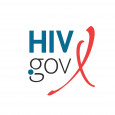As people with HIV live longer, end-stage diseases of the kidney, liver, heart and lung continue to rise. As a result, the need for organs available for transplantation has increased. However, donor organs are in chronic short supply nationwide for people with and without HIV. While people with HIV can and do continue to receive organs from HIV-negative donors, transplants from donors with HIV may reduce time on the transplant waiting list and associated costs for these recipients. Nearly a decade of research into organs transplanted from donors with HIV to recipients with HIV will inform an intended proposed rule from the U.S. Department of Health and Human Services (HHS) that, if finalized, would remove some of the current restrictions that authorize such transplants only under research protocols, potentially making them more widely available. As more people with HIV become organ donors, the overall pool of available organs is anticipated to increase, benefiting all people on transplant waiting lists since every successful transplant shortens the waitlist for all patients.
HHS intends to commence rulemaking to propose new standards for HIV-positive kidney and liver transplants to help increase access and reduce administrative burden. A notice of proposed rulemaking (NPRM) is expected to be developed later this year, and it will solicit public comment.
The Department’s action will be informed by recommendations from the Advisory Committee on Blood and Tissue Safety and Availability and the Blood, Organ, and Tissue Senior Executive Council, which considered evidence accumulated from years of research authorized by the HIV Organ Policy Equity Act (HOPE Act). Enacted in 2013 and implemented beginning in 2015, the HOPE Act made possible previously prohibited research related to the transplantation of organs in which both the donor and recipient have HIV. Since its implementation, more than 440 organs have been transplanted from donors with HIV to recipients with HIV. Nearly all of those transplants were kidney and liver transplants, and advisory committees have found that the accumulated evidence shows that these transplants are safe for both living donors and recipients. The research was conducted as part of two large-scale clinical trials supported by NIH’s National Institute of Allergy and Infectious Diseases, the HOPE in Action Multicenter Kidney Study and the HOPE in Action Multicenter Liver Study.
HHS intends to move forward with an NPRM, and once public comments are received and considered, HHS will decide whether to modify or implement the proposed policy change.
This blog post was published February 15, 2024, on HIV.gov.








Comments
Comments